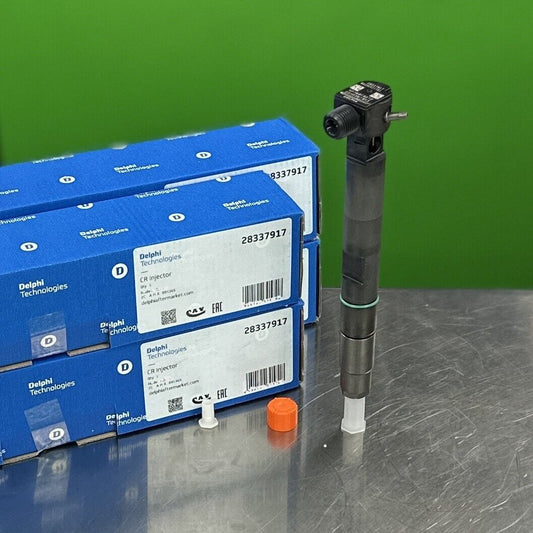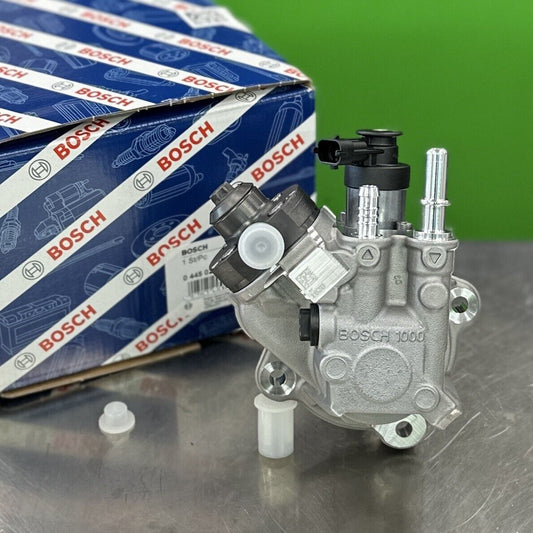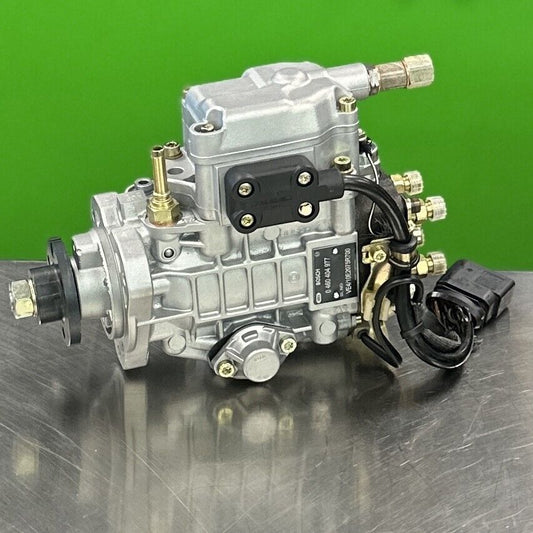Maximizing Fuel Efficiency in Diesel Trucks: 2025 Edition
As we approach the year 2025, the demand for fuel-efficient diesel trucks has never been higher. With rising fuel prices and increasing environmental concerns, truck owners are seeking ways to maximize their vehicle's fuel efficiency and reduce their carbon footprint. In this comprehensive guide, we'll explore the latest strategies and technologies that can help you achieve greater fuel efficiency in your diesel truck.
Understanding Diesel Engine Efficiency
Diesel engines are renowned for their impressive torque and fuel efficiency compared to their gasoline counterparts. However, there are several factors that can impact a diesel truck's fuel economy, including engine design, driving habits, and maintenance practices.
One of the key factors in diesel engine efficiency is the compression ratio. Higher compression ratios allow for more efficient combustion, resulting in greater power output and better fuel efficiency. Advancements in engine technology, such as turbochargers and common-rail fuel injection systems, have also played a significant role in improving the overall efficiency of modern diesel engines.
The Role of Aerodynamics
Another crucial aspect of fuel efficiency in diesel trucks is aerodynamics. The shape and design of the vehicle's body can have a significant impact on its drag coefficient, which directly affects fuel consumption. Manufacturers have been investing heavily in aerodynamic enhancements, such as streamlined hoods, side skirts, and rear spoilers, to reduce wind resistance and improve fuel efficiency.
Tire Selection and Maintenance
Tires are often overlooked, but they play a crucial role in a diesel truck's fuel efficiency. The type of tires, their rolling resistance, and their inflation pressure can all impact fuel economy. By choosing low-rolling-resistance tires and maintaining proper tire pressure, you can see a noticeable improvement in your truck's fuel efficiency.
Driving Techniques for Fuel Efficiency
While advancements in engine and vehicle design have contributed to improved fuel efficiency, the way you drive your diesel truck can also have a significant impact on its fuel consumption. By adopting the following driving techniques, you can maximize your truck's fuel efficiency:
Smooth Acceleration and Braking
Aggressive acceleration and sudden braking can significantly reduce your fuel efficiency. Instead, focus on smooth, gradual acceleration and braking, which can help you maintain a consistent speed and reduce the amount of fuel consumed.
Maintaining Optimal Speed
The most fuel-efficient speed for a diesel truck is typically between 45 and 55 miles per hour. Driving at higher speeds can increase wind resistance and fuel consumption, so try to maintain a steady, moderate speed whenever possible.
Utilizing Cruise Control
Cruise control can be a valuable tool for maintaining a consistent speed and reducing fuel consumption. When driving on the highway, use cruise control to help you maintain a steady pace and avoid unnecessary acceleration and braking.
Avoiding Excessive Idling
Idling your diesel truck can consume a significant amount of fuel without providing any forward motion. Whenever possible, turn off your engine if you expect to be stopped for more than a minute or two.
Maintenance and Upgrades for Fuel Efficiency
Proper maintenance and strategic upgrades can also play a crucial role in improving the fuel efficiency of your diesel truck. Here are some key areas to focus on:
Engine Maintenance
Regular oil changes, air filter replacements, and other engine maintenance tasks can help keep your diesel engine running at peak efficiency. Additionally, consider upgrading to high-quality engine oils and filters designed to improve fuel economy.
Exhaust System Upgrades
Upgrading your diesel truck's exhaust system can also contribute to improved fuel efficiency. Installing a high-flow exhaust system or a diesel particulate filter (DPF) can help reduce backpressure and improve engine performance.
Aerodynamic Enhancements
As mentioned earlier, aerodynamics play a crucial role in fuel efficiency. Consider adding aftermarket aerodynamic accessories, such as front air dams, side skirts, or a tonneau cover, to further reduce wind resistance and improve your truck's fuel economy.
Tire Upgrades
Investing in high-quality, low-rolling-resistance tires can provide a significant boost to your diesel truck's fuel efficiency. Look for tires specifically designed for improved fuel economy and make sure to maintain the recommended tire pressure.
The Future of Diesel Fuel Efficiency
As we look towards the future, the landscape of diesel truck fuel efficiency is poised to undergo even more dramatic changes. Advancements in engine technology, alternative fuels, and hybrid systems are all expected to play a role in further improving the fuel efficiency of diesel trucks.
Alternative Fuels and Hybrid Systems
The use of biodiesel, renewable diesel, and even hydrogen-powered systems are being explored as potential alternatives to traditional diesel fuel. These alternative fuels can offer improved emissions and, in some cases, enhanced fuel efficiency.
Additionally, the integration of hybrid systems, which combine a diesel engine with an electric motor, is expected to become more prevalent in the coming years. These hybrid systems can provide a significant boost in fuel efficiency, particularly in stop-and-go driving conditions.
Autonomous and Connected Technologies
The rise of autonomous and connected vehicle technologies is also expected to have a profound impact on the fuel efficiency of diesel trucks. Advanced driver-assistance systems (ADAS) and vehicle-to-vehicle (V2V) communication can help optimize driving patterns, reduce unnecessary acceleration and braking, and improve overall fuel efficiency.
Conclusion
As we move towards the year 2025, maximizing fuel efficiency in diesel trucks has never been more important. By understanding the key factors that influence fuel economy, adopting fuel-efficient driving techniques, and implementing strategic maintenance and upgrades, you can significantly improve the fuel efficiency of your diesel truck and reduce your environmental impact. With the continued advancements in engine technology, alternative fuels, and autonomous systems, the future of diesel truck fuel efficiency looks brighter than ever.



